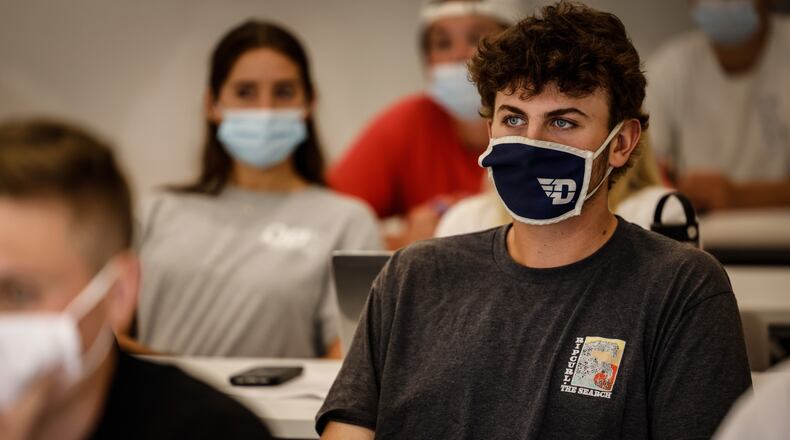“Employers value a college degree, but on top of that, they want to know prospective hires can learn from their own successes and failures, focus on solutions instead of problems, question common assumptions and a whole host of other skills,” said Brian LaDuca, executive director of UD’s Institute of Applied Creativity for Transformation (IACT).
He said the micro-credential program, in which a skill is typically incorporated into another class, focuses on those creative skills and allows students to demonstrate they have them. For example, a history professor may teach about empathy in a class, but more explicitly than in the past.
LaDuca said these types of credentials can also help employers who might be looking to improve their workforce. He said the university is working with a few local companies to provide their workers with this type of training, though some details have not yet been worked out. Full-time workers could take these classes in a weekend without being in a degree program.
In Sept. 2018, 1,028 U.S. based Society for Human Resource Management members were invited to participate in a study gauging workforce needs in both hard and soft skills. Employers who responded to that survey more commonly said their employees were missing soft skills, like problem solving and creativity, than hard skills, like carpentry or data science.
“The skills gap isn’t going away or fixing itself—over 50% of respondents feel that skills shortages have worsened or greatly worsened in their organizations in the last two years,” the survey said.
It makes sense to incorporate learning these skills into the college classes students are already taking in their degrees, LaDuca said.
“We’re not spending enough time teaching our young people those transformational skills and what it means to have those skills, so the micro credential is trying to fill those gaps of immediate need and immediate access,” LaDuca said.
Sinclair Community College offers classes that involve problem solving and creative thinking, said Cathy Petersen, a spokesman for Sinclair. Sinclair doesn’t specifically have a micro-credential program, but the school had the idea already in place and has had it in place for about 10 years.
Some other examples of these classes at Sinclair are work skills, about attendance and punctuality, and small group communication and leadership skills.
Petersen said Sinclair has offered those classes for around 10 years, and they are required as part of a degree for some programs. For example, students pursuing an Associate of Arts in Communication Studies would complete the First Year Experience and Interpersonal Communication courses as part of the degree curriculum, Petersen said.
Clark State plans to begin offering micro-certificates in 2022.
According to Clark State Engineering Program coordinator Nora Hatem, the creation of mini certificates, which are three-to-five-week classes, with 15 weeks for a full credential, will allow for customized training and a quick in-and-out for specific skills training.
At Clark State, students can stack these credentials to earn a one-year certificate and then a two-year associate degree. Hatem said this method allows for a quick training path.
Clark State said it would be offering these micro-certificates in advanced manufacturing. National certifications will be included in the program.
LaDuca said he is still working to show employers these micro-credentials matter. But he said there is already a proven track record of these micro-credentials helping students get jobs.
Two teachers trained at UD and certified in empathy were able to get jobs they wanted right out of college, LaDuca said.
“Somebody who can say they have these skills and can show how these skills are impacting their work, they are definitely rising up the ladder and getting jobs even right out of college in ways that I don’t think we’ve seen yet,” LaDuca said.
About the Author

